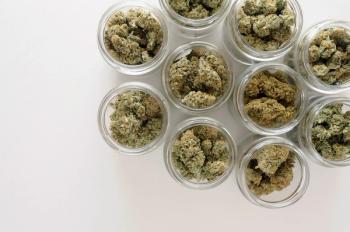
Researchers with Oregon State University analyzed responses from panelists sampling cannabis inflorescence aroma, proposing a common framework for an established vocabulary.

Researchers with Oregon State University analyzed responses from panelists sampling cannabis inflorescence aroma, proposing a common framework for an established vocabulary.

In this interview, Steve Ellmore, shares the challenges veterans are facing with cannabis use and other government regulations.
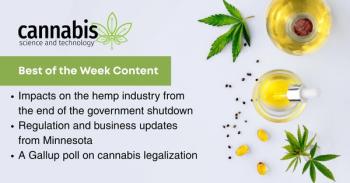
Our top cannabis news topics this week: impacts on the hemp industry from the end of the government shutdown, regulation and business updates from Minnesota, and a Gallup poll on cannabis legalization.
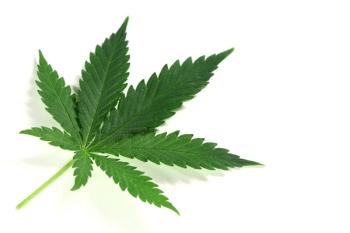
The study compared the risk factors and cannabis use among youth in the years before and after legalization in 2018, identifying a need for adapting prevention efforts.

The Senate’s reopening the government bill has passed but it includes a section that redefines hemp and can ban hemp products with a greater amount of 0.4 mg total THC.

MoreBetter Ltd, study organizers urge legislators to view the data in their before voting on a Senate hemp bill that could cause harm to the industry by redefining hemp THC amounts.

Co-use of cannabis and alcohol among a sample of college students found positive associations of depression among both male and female students.

Results from one of its annual public opinion surveys indicate that support for cannabis legalization remains high in 2025, but also shows changing perceptions on illegal drugs.

In this interview, Harrison Bard, shares the challenges of manufacturing cannabis pre-rolls.
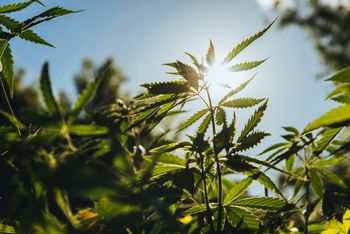
The US Hemp Roundtable urges action after Senate legislation threatens to redefine hemp limits—potentially eliminating 95% of businesses and 300,000 jobs nationwide.

A study looked into the beneficial role THC-CBD cannabis extracts may play with Alzheimer’s disease-associated dementia.

Kyle Loucks and Harrison Bard delve into the pros and cons of manual and automated cannabis pre-roll production.

Kyle Loucks and Harrison Bard discuss the challenges of cannabis flower grinding.

White Earth Nation recently announced revisions to the tribe’s resolution and opened commentary to the public.
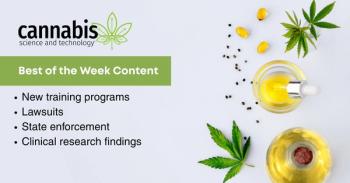
Our top cannabis news topics this week: new training programs, lawsuits, state enforcement, and clinical research findings.

The first inaugural cohort for Minnesota’s cannabis business accelerator have been selected by North Star Cannabis Consulting.

Frequent cannabis users experience higher anxiety symptoms than infrequent or non-users, yet are less likely to use FDA-approved anxiety medications.

Kyle Loucks and Harrison Bard delve into the preferred moisture content for cannabis flower in pre-rolls.
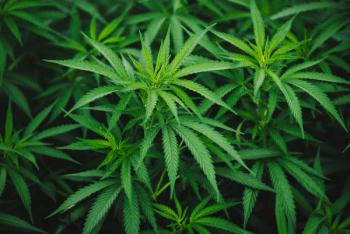
The 39 attorneys general sent a letter to congressional leaders requesting a redefinition of hemp to exclude intoxicating hemp-derived THC products.
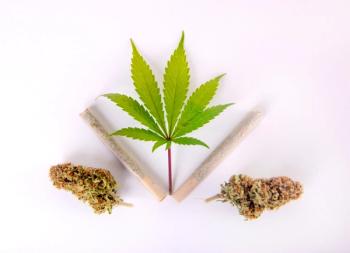
Pre-rolls have dethroned flower as the top-selling cannabis segment, driven by demand for consistency and potency. Still, perfecting automation and combating "lab shopping" remain key industry challenges.

A new study finds that THC:CBD cannabis oil may improve appetite and quality of life in systemic sclerosis patients.

Zacariah Hildenbrand, PhD and Adam Jacques discuss what to consider when deciding between indoor, outdoor, and hybrid cannabis cultivation.

Here, we explore the essence of cannabis flavor, which is defined by compounds like terpenes, terpenoids, and volatile sulfur compounds. These molecules shape the aroma and taste and also contribute to the plant's physiological effects through the "entourage effect." Advanced tools are used to analyze this complex chemical symphony.

Recently, the Virginia Cannabis Control Authority established a training program for practitioners through a partnership with TheAnswerPage.com.

The new study found that education intervention resulted in improvements in patient symptom management.

A coalition of cannabis testing labs is suing Revvity Health Sciences (formerly PerkinElmer, or PE) for $1 billion, alleging fraud and breach of warranty. The dispute centers on PE's alleged claim that one instrument could accurately analyze the 60+ pesticides required by California law, which typically requires two instruments. This article proposes solutions like better compensation for application scientists and improved lab training and regulation.

Learn cannabis packaging compliance tips and label requirements to avoid costly regulatory pitfalls and enhance brand visibility.

The New York OCM recently issued a Notice of Pleading to Omnium Canna.

Our top five cannabis and hemp news this week: Ohio cannabis regulation updates, New York recalls and grants, indoor cultivation insights, and High Tide expansions.

Ohio SB 56 faces conference committee after Senate rejects House's changes made to hemp rules.